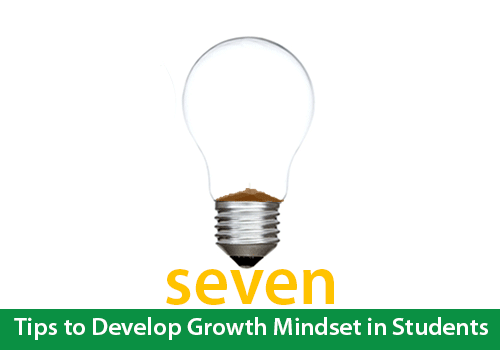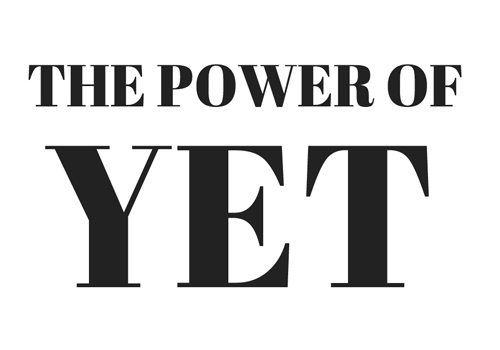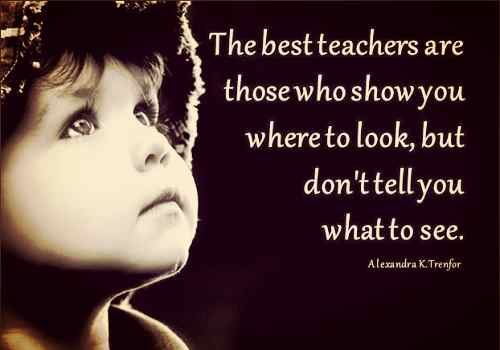Categories(658 Blogs)
Select Category
Watch Right Now
Teacher App - Class
Schedule & Attendance Management App
Parent App from Edsys

Best School Bus Tracking System

Cashless School - For Smart Schools of Tomorrow


7 Tips to Develop Growth Mindset for Students

As opposed to prevalent theory, high accomplishment isn’t just a result of ability and talent. Truth be told, our inner opinions about our own particular capacities, aptitudes, and potential really fire personal conduct standards and anticipate achievement.
Growth mindset has been a trendy term in education, with which many educators and children are now acquainted with. In any case, there’s a challenge that appears to happen on a regular basis on how to accomplish it.
What is a growth Minsdet?
Theory suggests that it is possible to enhance the intellect and abilities of an individual with optimised effort and invigorative methods. All the student needs, is a belief that talents are susceptible to enhancements.
The growth mindset is presented to students close to the starting of the year but after that, the demands of the academic curriculum appear to take the criterion. When you have such a significant number of skills which you need to instruct numerous guidelines for children to ace, it’s difficult to recall about growth mindset. Thus, considerably lesser time is given to teaching and implementing the growth mindset process in students.
First, let us understand the difference between two basic types of mindsets. As knowing how to detect a fixed mindset from a growth mindset is consequently very essential before learning to instill growth mindset techniques in your students.
Fixed mindset VS. Growth mindset
When students have a fixed mindset, we believe that children aren’t equipped for learning things that they don’t take normally to. We trust that a few students are great at reading, while others are great at Math. This couldn’t possibly be more off-base.
Whereas when we have a growth mindset, we comprehend that with the correct sort of effort, we can get the hang of anything. Learning is a procedure; a route to knowledge. The way one student may need to take to learn something might be varied in relation to the way the other student may need to learn something. Having a growth mindset is tied in with realizing and attaining that way to understanding.
There are seven easy tips you can imbue growth mindset into what students do every day. Let’s know how:
- Set attainable micro-goals
Support development and progress by assigning small objectives for your students. This will help form their confidence and help build up a growth mindset. Any small goal along with the understanding can support and reinforce your students.
Concentrate on the procedure they took to achieve the goal, what they could gain from it and improve the situation next time, and how great it felt to achieve something that felt troublesome.
- Praise them well
Make a point to praise the learning procedure not simply the effort. Say things, for example, “The fact is to develop your understanding in a slowly and steadily. I like how you didn’t surrender when things got difficult.”
- Grasp the word YET
Say things like – “You can’t do this YET, can put efforts!” The word YET is an intense one. Inspire students to utilize it themselves when they feel frustrated and stuck out. The words ‘yet’ or ‘not yet,’ give kids more noteworthy confidence, give them a route into the future that makes more unique endurance.
- Give students chance to ask for help
Ultimately, we all arrive at a point where we can’t make sense of a solution. This can be a right time to request for help. Individuals with a growth mindset are more worried about developing skills and knowledge than endeavoring to look intelligent by not making inquiries.
Remember, actually, a few of the sharpest, most expert individuals on the planet constantly make inquiries to look for understanding.
Requesting help isn’t to be humiliated or embarrassed about. It’s an important approach toward learning and comprehension.Instruct your children that requesting for help is an important device that they generally have in their learning toolbox.
- Create Group learning activities
Kids learn by collaborating in groups that their participation and endeavors lead to the group success. Their sense of loyalty for the performance of their group will push them on to make a proper attempt. Accordingly, they will have a feeling of success on completing the group activity, incorporating confidence that spreads into different other exercises.
- Disregard grades
The aim of a growth mindset is to think about the procedure, not the result. Grades concentrate excessively on the result.
Students having a fixed mindset and awful grades don’t get up effectively. They will begin to disregard their academic courses seeing their awful grades since it’s simply not there. They will feel they don’t have it in them. That is the place it’s imperative to start encouraging your students.
At the point that mistakes happen, teach them the ways they can learn from the experience and let them know verbally, rather than simply giving them a grade. Give them chances to enhance poor performance, by re-educating and giving opportunities to edit or re-do their work after helpful feedback has been given.
With legitimate feedback and formative evaluation rather than the summative appraisal, a growth mindset can be accomplished. The benefit of learning ought to be prioritized.
- Let them take risks
Parts of progressing in the direction of a strong understanding of an idea are choosingto take risks, attempting new things, and knocking obstacles. Tell your students that you value attempting new things, attempting again and again, and confronting a challenge. That will empower your students to feel sufficiently safe to opt for risk-taking by themselves.
Final Thoughts
By implementing basic exercises and giving chances to students to build up the aptitudes that are important to address difficulties head-on, we can enable them to discover faith in their academic path. Also, we will make an atmosphere that advances the growth mindset.Incorporating growth mindset-oriented learning methods into the classroom, thus, can beneficially affect the learning in students.
Recent Blogs
Our Educational Services
Popular Blogs
Subscribe

SUBSCRIBE TO OUR NEWSLETTER
Sign Up and Recieve the Latest News
Don’t Worry, We Don’t SpamExplore Our Extensive Researched Educational App Directory
Visit Now





















